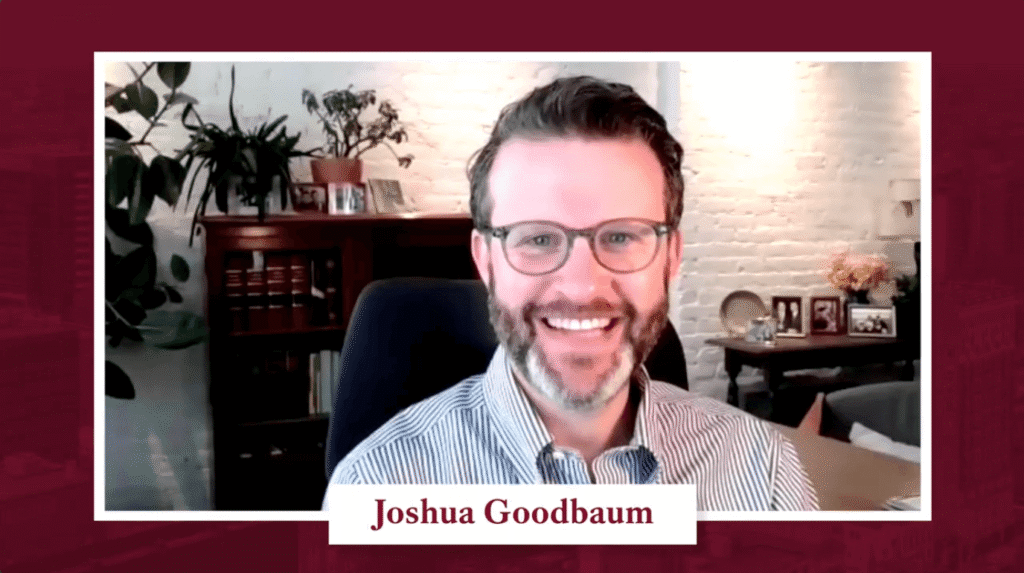Oct 1 2025
Amanda DeMatteis: Hi, Josh.
Josh Goodbaum: Hi, Amanda. What are we talking about today?
DeMatteis: I thought we would talk about what everyone is talking about, and that’s Jimmy Kimmel. Connecticut employees might be saying, “Come on, guys, what does this have to do with me?” And the truth is quite a bit. We have a lot of people come to us and say, “Look, I was exercising my First Amendment rights, my free speech rights, at work. I was just speaking my mind, and I got disciplined or I got terminated.” We see this all the time. So yes, it’s on a very different platform. This is Jimmy Kimmel, this is ABC, this is Disney, but this has a lot to do with exactly the types of employment law issues we talk about.
So, let’s break this down into two parts if we can, Josh. There is federal protection under our United States Constitution for free speech, and then we also have Connecticut law, which also protects free speech rights. How do these two sources of law affect Connecticut employees at work and their ability to speak out on just about anything?
Goodbaum: This is a little complicated, Amanda, so stick with me, alright?
We have the U.S. Constitution, which has a First Amendment that protects speech. But the U.S. Constitution only applies to government action, and so, at its core, it only protects public employees – that is, people who work for the government. In addition, in Connecticut, we have an unusual, maybe even a unique, law, 31-51q, that protects private employees – that is, people who work for anybody in the state of Connecticut. 31-51q says that employers have to respect employee free speech rights the same as if those employees worked for the government.
DeMatteis: Okay, Josh, this is an interesting distinction, but does this mean if I work for a private employer in Connecticut, then I get to go to work and just say anything I want about any topic I want to discuss?
Goodbaum: No, Amanda, for two different reasons.
The first is that, under the First Amendment to the U.S. Constitution as it applies to public employees and as it applies to private employees through our Connecticut statute 31-15q, you are usually only protected if your speech is not pursuant to your official duties.
If it’s your job to make the speech – if you’re a teacher, for example, and it’s your job to speak to a classroom full of students – you don’t have any independence in what you say. Your employer has an absolute right to restrict how you do your job.
But there’s a difference between speech that is to do your job and speech that happens in the workplace. Some speech that’s in the workplace is not going to be pursuant to your official duties and can be constitutionally protected.
Here’s the second reason you can’t say whatever you want. Under the Connecticut statute, the speech is only protected if the speech does not substantially interfere with your ability to do your job or with the working relationship between you and your employer. Take an extreme example: this is why you can’t just wear a Nazi t-shirt to work. That’s protected speech. If you want to do it on the town green on the weekends, you’re allowed to do that. But if you wear it to work, people are going to be reasonably concerned that your shirt would create a whole lot of hostility in the workplace, and your employer doesn’t have to let you do that. They would not have a hard time proving that your speech, or in this case, your t-shirt, which is a form of speech, would substantially interfere with the workplace, so it’s not protected at work.
DeMatteis: So, if we’re analyzing Jimmy Kimmel’s speech on a national syndicated talk show, and we’re doing that under Connecticut law, was Jimmy Kimmel’s speech protected?
Goodbaum: For employment purposes, Amanda, I think the answer is no. The speech, to start, was clearly pursuant to his official duties. Jimmy Kimmel gets paid what I assume is quite a lot of money to host a talk show, and his employer (ABC and Disney) is allowed to tell him what to say and what not to say.
Now, there are some exceptions under the Connecticut Constitution where speech is protected even if it’s pursuant to one’s official duties, but that’s limited to really important things like official dishonesty or illegality or public safety. I don’t think Jimmy Kimmel’s speech, as I understand it, implicated any of those topics. So, as an employee, for employment law purposes, even if he worked in Connecticut, I don’t think Jimmy Kimmel would have any recourse vis-à-vis his employer.
That said, there does seem to be another angle here, which is that the federal government arguably was threatening ABC and its business because of the content of what Jimmy Kimmel was saying. Now, that’s not an employment issue; that’s a regulatory issue. But it is black letter law that the government cannot punish a person or company because of the content of their speech.
DeMatteis: Lots of interesting legal issues that come up here, some of which are well outside of the bounds of our expertise. But it is interesting to see free speech on such a national platform, and in a way that really does impact Connecticut employees. So, thanks for the breakdown.
Thank you for watching. I’m sure we’ll have more to talk about soon. Take care.
Posted by Garrison, Levin-Epstein, Fitzgerald & Pirrotti, P.C. in Commentary
Tagged Amanda DeMatteis, Joshua Goodbaum









